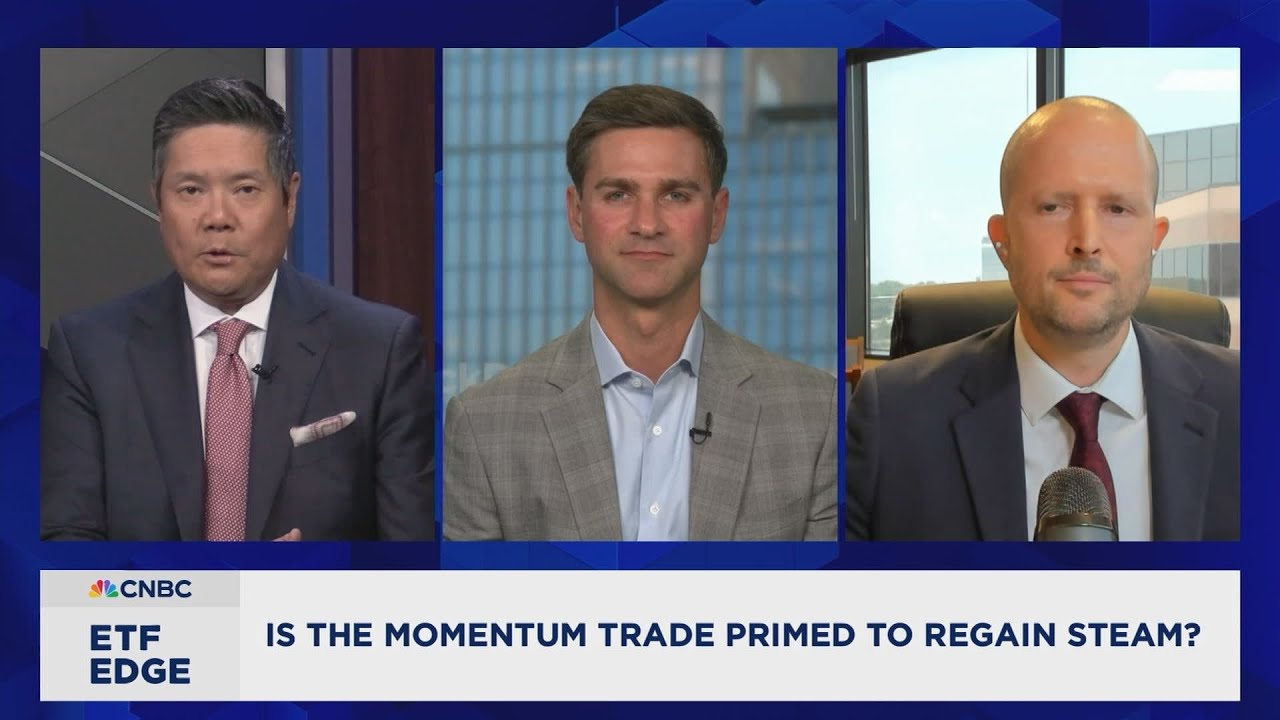The ETF Edge video highlights strong momentum-driven ETF inflows, particularly in sectors like financials and technology, amid ongoing market recovery, while emphasizing the growing influence of AI and the increasing adoption of Bitcoin and other cryptocurrencies through ETFs. Experts also discuss the potential for future crypto ETF growth, driven by regulatory clarity and investor education, as the market continues to evolve.
The video from ETF Edge discusses the current momentum in the exchange-traded fund (ETF) market, highlighting that despite market turbulence, ETF inflows are on track to reach $1 trillion this year. Host Dominic Chu interviews Jay Jacobs from BlackRock and Nate Jerice from the ETF Store to analyze recent trends. One notable development is the record performance of the iShares Momentum ETF (MTUM), which hit an all-time high since its inception in 2013. Jacobs explains that the market is currently momentum-driven, with the ETF outperforming the S&P 500 by about 10%, primarily due to strong performance in sectors like financials and consumer staples, which are exhibiting robust momentum.
The discussion emphasizes that momentum stocks tend to perform well in risk-on environments, especially since the market recovery began in April. Both Jacobs and Jerice note that recent outperformance is driven by sectors such as financials and technology, which have surged following earlier trade tensions. Investors are gravitating toward these stocks because they have demonstrated recent success, reflecting a trend-following approach. However, Jerice cautions that market variables like trade policies, valuations, and Federal Reserve actions create a wait-and-see attitude, suggesting that momentum may continue as long as current conditions persist.
Artificial intelligence (AI) remains a dominant theme in the ETF space, with many companies integrating AI into their operations. Jerice points out that AI’s pervasive influence across sectors makes it a broad, long-term growth driver rather than a niche trend. BlackRock has responded by launching targeted AI ETFs, such as BAI, managed actively to provide more precise exposure to AI-related companies. Jacobs explains that this approach helps investors avoid diluted exposure that comes from broad tech sector investments, allowing for more granular and potentially more profitable AI investments.
The conversation then shifts to Bitcoin and cryptocurrencies, noting the significant inflows into Bitcoin ETFs like the iShares Bitcoin Trust (IBIT). Despite recent outflows, the ETF has seen substantial inflows over the past six weeks, driven by growing institutional and advisor comfort with digital assets. Nate highlights that Bitcoin’s performance and its lower correlation to traditional assets make it attractive for diversification. Jacobs adds that the process of adoption is progressing through stages of access, education, and implementation, with more institutional and retail investors starting to allocate to Bitcoin as they become more comfortable with its role in portfolios.
Finally, the panel discusses the future of crypto-related ETFs beyond Bitcoin, such as Ethereum and other altcoins. Jerice notes that Ethereum is gaining attention due to recent upgrades and policy developments, though Bitcoin remains the primary focus for most investors. Both experts agree that the crypto ETF market is still in its early stages, with significant growth expected as education improves and regulatory clarity increases. Jerice predicts a wave of new crypto ETFs later in the year, offering investors more options to diversify within the digital asset space. Overall, the discussion underscores a market in transition, with momentum, AI, and cryptocurrencies shaping the evolving ETF landscape.
